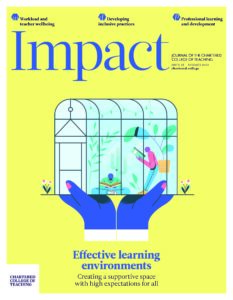Second language acquisition for EAL learners: From philosophical understandings to classroom practices
Written by: Caroline Bligh Stephen Newman

8 min read
Caroline Bligh, Open University, UK
Stephen Newman, Carnegie School of Education, Leeds Beckett University, UK
With many children in UK schools currently learning English as a second (or, often, as an additional) language, the needs of those young learners are becoming a focus for many teachers. We argue that too much attention has been focused on the why and how of additional language acquisition and insufficient attention paid to what is being acquired, and to links between second and first language acquisition. In the light of the reinterpretation offered, it is suggested that some second language practices can be better understood and thus lead to innovative and motivating solutions to fit the needs of new-to-English second language learners.
Introduction
With one in six children in UK schools currently learning English as a second (or often additional) language and an increase of new-to-English (NTE) children entering the educational system (Drummond, 2014), teachers are
Join us or sign in now to view the rest of this page
You're viewing this site as a guest, which only allows you to view a limited amount of content.
To view this page and get access to all our resources, join the Chartered College of Teaching (it's free for trainee teachers and half price for NQTs) or log in if you're already a member.
- Bligh CA (2014) The Silent Experiences of Young Bilingual Learners: A Sociocultural Study
- Clarke P (2009) Supporting Children Learning English as a Second Language in the Early Years (Birth to Six Years). Melbourne: Victorian Curriculum and Assessment Authority.
- Dörnyei Z (2019) Psychology and language learning: The past, the present and the future. Journal for the Psychology of Language Learning 1: 27–41.
- Drummond C (2014) How can UK schools support young children learning English. British council Voices Magazine. Available at: www.britishcouncil.org/voices-magazine/how-uk-schools-support-young-learners-english (accessed 7 November 2021).
- Gilroy P (1996) Meaning Without Words: Philosophy and Non-Verbal Communication. Aldershot: Avebury.
- Newman F and Holzman L (2014) Lev Vygotsky: Revolutionary Scientist. Hove: Psychology Press.
- Newman S (2018) Vygotsky, Wittgenstein, and sociocultural theory. Journal for the Theory of Social Behaviour 48(3): 350–368.
- Swain M, Kinnear P and Steinman L (2011) Sociocultural Theory in Second Language Education: An Introduction Through Narratives. Bristol: Multilingual Matters.
- Wittgenstein L (1967) Philosophical Investigations, 3rd ed (trans GEM Anscombe). Oxford: Basil Blackwell.
- Wittgenstein L (1969) On Certainty (trans D Paul and GEM Anscombe; eds GEM Anscombe and GH von Wright). Oxford: Basil Blackwell.
3.8
4
votes
Please Rate this content
Subscribe
Please login to comment
0 Comments
Inline Feedbacks
View all comments










